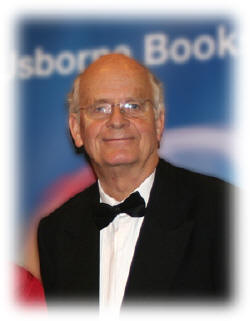 |
Since 1975, when we published our first books, Usborne Publishing has grown into one of the world's leading publishers of
non-fiction for children with translations in over forty languages, as well as having won the Times Educational Supplement
Information Book Award.
The remarkable success of Usborne Books derives from the simple idea that it is possible, without any sacrifice of quality,
to produce non-fiction books as interesting and entertaining as television, magazines and comics, media that most children
instinctively prefer.
We compete with those "friendly" media in a number of ways, many of them unique to Usborne Publishing. First,
and most important, we spend an enormous amount of time and money producing every one of our books. These huge investments
are essential for researching, visualizing and illustrating often very difficult subjects, such as computers, biology or typography,
in a really simple, stylish and appealing way without losing detail or accuracy. We can only afford to do books in this laborious
way because we persuade dozens of publishers overseas to share cost with us in return for the right to publish our books in
their own languages. The sale of our books overseas is now so widespread that it is probably quite difficult to go on holiday
anywhere in the world without bumping into an Usborne book.
Apart from time and money, we use a number of other ingredients to make our books appealing to children: humour whenever
possible; a remarkably wide variety of illustration styles, increasingly including photography, a very high ration of pictures
to text; short magazine-like paperback formats; tremendous detail; and a totally clear, simple but unpatronising text. We
never, never talk down to children.
|
 |

The growth in the sales of Usborne books in the last few years has been quite remarkable, helped, we believe, by a rapidly
increasing concern among parents to support the education of their children by providing stimulating and interesting books
at home. It is becoming more and more widely accepted that the presence-and ownership-of books at home is one of the key factors
linked to success at school. Many more teachers now accept that parents can, and should, play an important role in helping
with children's education.
Meanwhile, we continually experiment with new directions and media. Whatever we do, we always try to stick to our first
principle: finding out can and should be one of life's greatest pleasures.
|